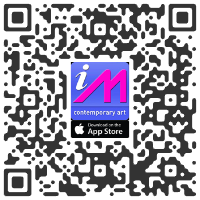"Booth C2"
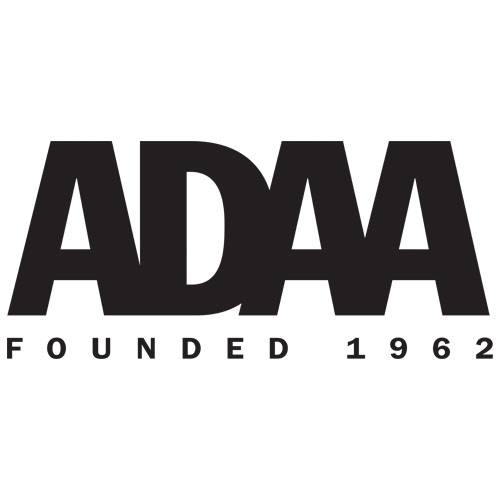

telephone: 212 488 5550 fax: 646 688 6809This email address is being protected from spambots. You need JavaScript enabled to view it.


T: +1 212 966 5154 F: +1 212 966 5349 e-mail:This email address is being protected from spambots. You need JavaScript enabled to view it.
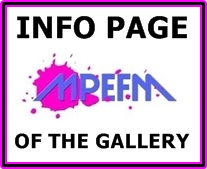

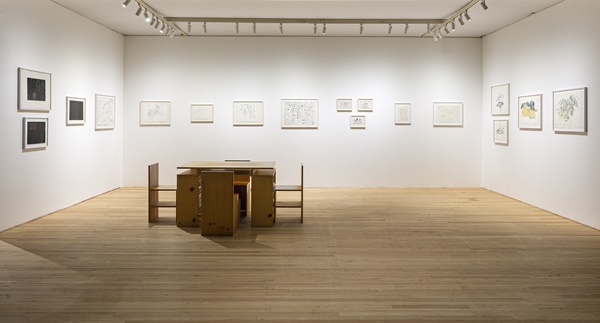
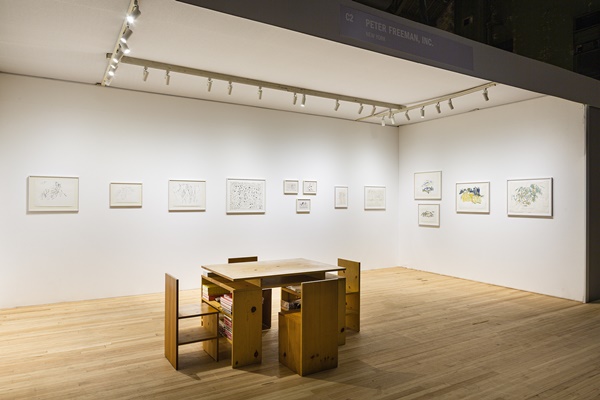
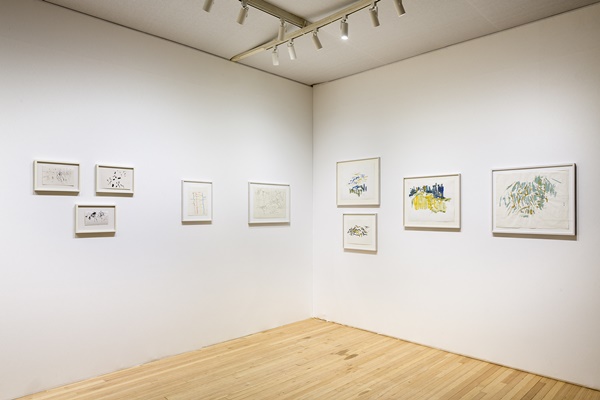
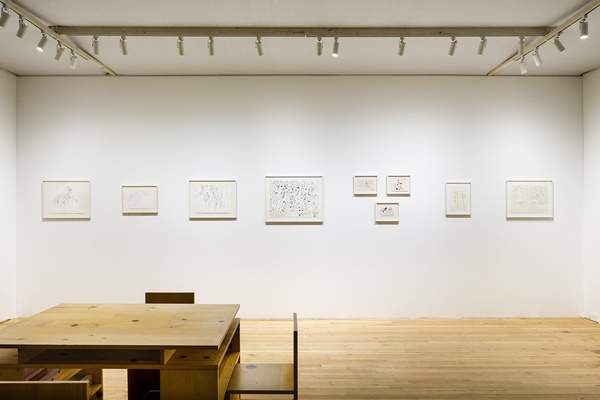
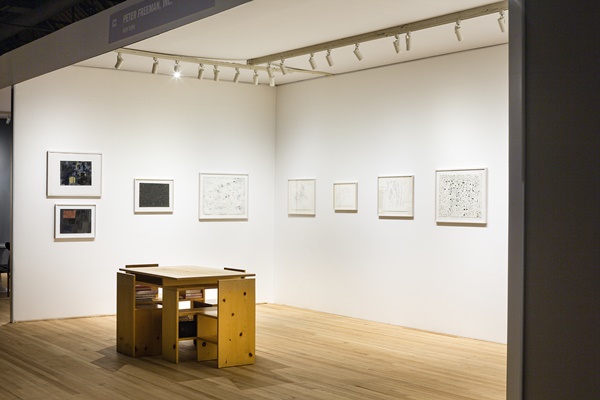
Charlotte Posenenske

ADAA 2020 Art Show
Park Avenue Armory Park Avenue at 67th Street New York Citytelephone: 212 488 5550 fax: 646 688 6809

PETER FREEMAN INC
140 Grand Street (Ground Floor, between Crosby and Lafayette) New York, New York 10013T: +1 212 966 5154 F: +1 212 966 5349 e-mail:


February 27 > March 1, 2020





Booth C2
Peter Freeman, Inc. is pleased to present a solo booth presentation dedicated to the rare, early works on paper by the pioneering Minimal and Conceptual artist Charlotte Posenenske (1930–1985) at ADAA's The Art Show. Drawings from this period are highlighted in Charlotte Posenenske: Work in Progress, Dia:Beacon (2019), the first major North American retrospective of the artist, currently on view at the Museu d'Art Contemporani de Barcelona. In 2014, Peter Freeman, Inc. presented the first exhibition devoted entirely to Posenenske's early works, many of which had never been shown before in New York.
Charlotte Posenenske is known for her industrially fabricated modular sculptures, which are produced in unlimited series and assembled or arranged at will. Though she exhibited widely throughout the 1960s, alongside peers such as Hanne Darboven, Donald Judd, and Sol LeWitt, with whom she shared an interest in seriality, her work is distinguished by its radically open-ended nature. Posenenske created an exceptionally innovative body of work within a focused and abbreviated period of time, ultimately abandoning art in 1968 to pursue sociology. Posthumously exhibited at documenta 12 in 2007, her work has gained renewed interest over the last decade, restoring her place among the leaders of Minimalism.
Before turning to sculpture in 1966, Posenenske worked as a painter. She created impressionistic landscapes inspired by Cézanne, as well as abstract gestural paintings. She created stripe pictures and structural, sculptural pictures, reminiscent of Piet Mondrian, whose horizontal and vertical compositions were a significant influence on the artist––and grid pictures in ink and casein bearing qualities which scholars have related to Japanese Calligraphy and Lucio Fontana.
The booth will showcase works on paper from this period between 1957 to 1965 in which Posenenske developed experimental techniques for applying color and line to paper and board, using it as a space to experiment with simplification, repetition, and eliminating the subjectivity of the hand through mark-making. In the Spachtelarbeit (Palette-knife work) series, Posenenske used her tool to avoid the individual expression of the hand, to the degree of her Art Informel and Abstract contemporaries. Meanwhile, in the Landschaft (Landscapes), painted outdoors, she aimed to distill natural elements into gesture and essential marks, paring them down to near abstraction while retaining a pictorial organization. Her determination to undermine any subjective, individualist fixation of the gesture, is a defining characteristic of this body of work, laying bare her issues with authorship, a concern ultimately addressed in her three-dimensional sculpture. Her pivotal decision to hand over responsibility for the production of the work to fabricators and the installation decisions to recipients marked a highly consistent intensification with this conflict.
Posenenske began studying painting in 1951, eventually studying with Willi Baumeister in Stuttgart before working as a set and costume designer until 1955. Her first exhibition was in 1959 at Galerie Weiss, Kassel and her first solo exhibition, in 1961, was at Galerie Dorothea Loehr in Frankfurt. Throughout the sixties, her work gained wide recognition in Germany and abroad until, in 1968, she published her Manifesto, in which she ended her career as an artist, claiming that art could not have a sufficient political impact. After discovering the work in documenta 12, Peter Freeman, Inc., presented the first American exhibition of Charlotte Posenenske in 2009 and published her first monograph in English.
Since then, her work has gained renewed attention through presentations at Artists Space, New York (2010); K21, Düsseldorf (2012); Kunsthalle Wiesbaden, Germany (2012); São Paulo Biennial (2012); and Kröller-Müller Museum, the Netherlands (2019). Her first North American retrospective Work in Progress (2019) at Dia:Beacon is on view at Museu d'Art Contemporani de Barcelona through 8 March 2020 and will be traveling to Kunstsammlung Nordrhein-Westfalen Düsseldorf (4 April–2 August 2020), and Mudam Luxembourg—Musée d'Art Moderne Grand-Duc Jean (2 October 2020–10 January 2021). Her work is in the permanent collections of many prestigious institutions, including the Museum of Modern Art (New York), Museum of Contemporary Art (Chicago), Centre Pompidou (Paris), Tate Modern (London), Museum Ludwig (Cologne), and MMK Museum für Moderne Kunst (Frankfurt am Main).
Peter Freeman, Inc. is pleased to present a solo booth presentation dedicated to the rare, early works on paper by the pioneering Minimal and Conceptual artist Charlotte Posenenske (1930–1985) at ADAA's The Art Show. Drawings from this period are highlighted in Charlotte Posenenske: Work in Progress, Dia:Beacon (2019), the first major North American retrospective of the artist, currently on view at the Museu d'Art Contemporani de Barcelona. In 2014, Peter Freeman, Inc. presented the first exhibition devoted entirely to Posenenske's early works, many of which had never been shown before in New York.
Charlotte Posenenske is known for her industrially fabricated modular sculptures, which are produced in unlimited series and assembled or arranged at will. Though she exhibited widely throughout the 1960s, alongside peers such as Hanne Darboven, Donald Judd, and Sol LeWitt, with whom she shared an interest in seriality, her work is distinguished by its radically open-ended nature. Posenenske created an exceptionally innovative body of work within a focused and abbreviated period of time, ultimately abandoning art in 1968 to pursue sociology. Posthumously exhibited at documenta 12 in 2007, her work has gained renewed interest over the last decade, restoring her place among the leaders of Minimalism.
Before turning to sculpture in 1966, Posenenske worked as a painter. She created impressionistic landscapes inspired by Cézanne, as well as abstract gestural paintings. She created stripe pictures and structural, sculptural pictures, reminiscent of Piet Mondrian, whose horizontal and vertical compositions were a significant influence on the artist––and grid pictures in ink and casein bearing qualities which scholars have related to Japanese Calligraphy and Lucio Fontana.
The booth will showcase works on paper from this period between 1957 to 1965 in which Posenenske developed experimental techniques for applying color and line to paper and board, using it as a space to experiment with simplification, repetition, and eliminating the subjectivity of the hand through mark-making. In the Spachtelarbeit (Palette-knife work) series, Posenenske used her tool to avoid the individual expression of the hand, to the degree of her Art Informel and Abstract contemporaries. Meanwhile, in the Landschaft (Landscapes), painted outdoors, she aimed to distill natural elements into gesture and essential marks, paring them down to near abstraction while retaining a pictorial organization. Her determination to undermine any subjective, individualist fixation of the gesture, is a defining characteristic of this body of work, laying bare her issues with authorship, a concern ultimately addressed in her three-dimensional sculpture. Her pivotal decision to hand over responsibility for the production of the work to fabricators and the installation decisions to recipients marked a highly consistent intensification with this conflict.
Posenenske began studying painting in 1951, eventually studying with Willi Baumeister in Stuttgart before working as a set and costume designer until 1955. Her first exhibition was in 1959 at Galerie Weiss, Kassel and her first solo exhibition, in 1961, was at Galerie Dorothea Loehr in Frankfurt. Throughout the sixties, her work gained wide recognition in Germany and abroad until, in 1968, she published her Manifesto, in which she ended her career as an artist, claiming that art could not have a sufficient political impact. After discovering the work in documenta 12, Peter Freeman, Inc., presented the first American exhibition of Charlotte Posenenske in 2009 and published her first monograph in English.
Since then, her work has gained renewed attention through presentations at Artists Space, New York (2010); K21, Düsseldorf (2012); Kunsthalle Wiesbaden, Germany (2012); São Paulo Biennial (2012); and Kröller-Müller Museum, the Netherlands (2019). Her first North American retrospective Work in Progress (2019) at Dia:Beacon is on view at Museu d'Art Contemporani de Barcelona through 8 March 2020 and will be traveling to Kunstsammlung Nordrhein-Westfalen Düsseldorf (4 April–2 August 2020), and Mudam Luxembourg—Musée d'Art Moderne Grand-Duc Jean (2 October 2020–10 January 2021). Her work is in the permanent collections of many prestigious institutions, including the Museum of Modern Art (New York), Museum of Contemporary Art (Chicago), Centre Pompidou (Paris), Tate Modern (London), Museum Ludwig (Cologne), and MMK Museum für Moderne Kunst (Frankfurt am Main).
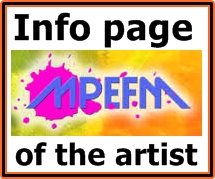 |
Charlotte Posenenske |
mpefm
USA fair art press release
HOURS:
Thursday - Friday: 12 to 8pm
Saturday: 12 to 7pm
Sunday: 12 to 5pm
Admission :
Single Day Ticket: $25 Available online or at the door.
QR of this press release
in your phone, tablet
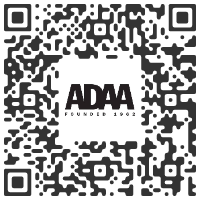
Gala Preview:
Wednesday, February 26, 2020
Gala Preview Tickets
Purchased through
Henry Street Settlement
212 766 9200 ext. 248
Wednesday, February 26, 2020
Gala Preview Tickets
Purchased through
Henry Street Settlement
212 766 9200 ext. 248
HOURS:
Thursday - Friday: 12 to 8pm
Saturday: 12 to 7pm
Sunday: 12 to 5pm
Admission :
Single Day Ticket: $25 Available online or at the door.
QR of this press release
in your phone, tablet








